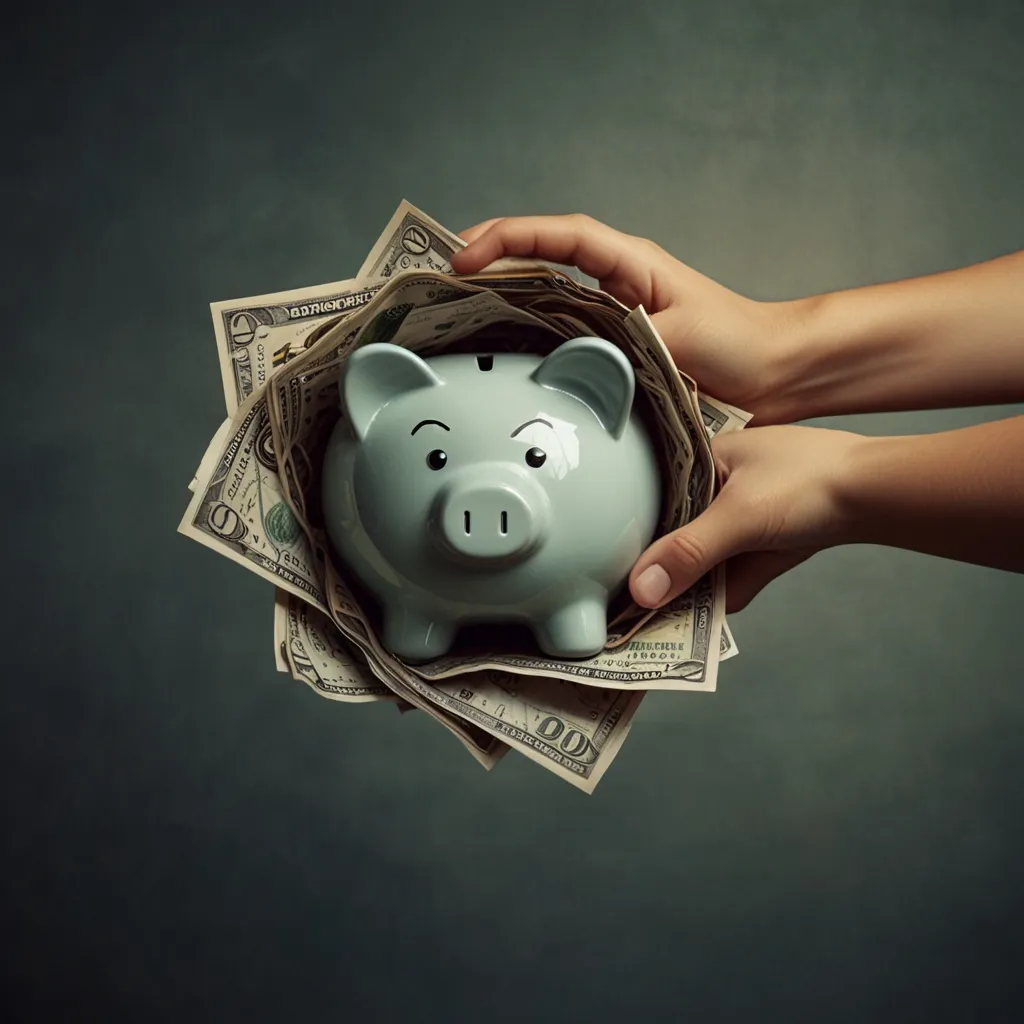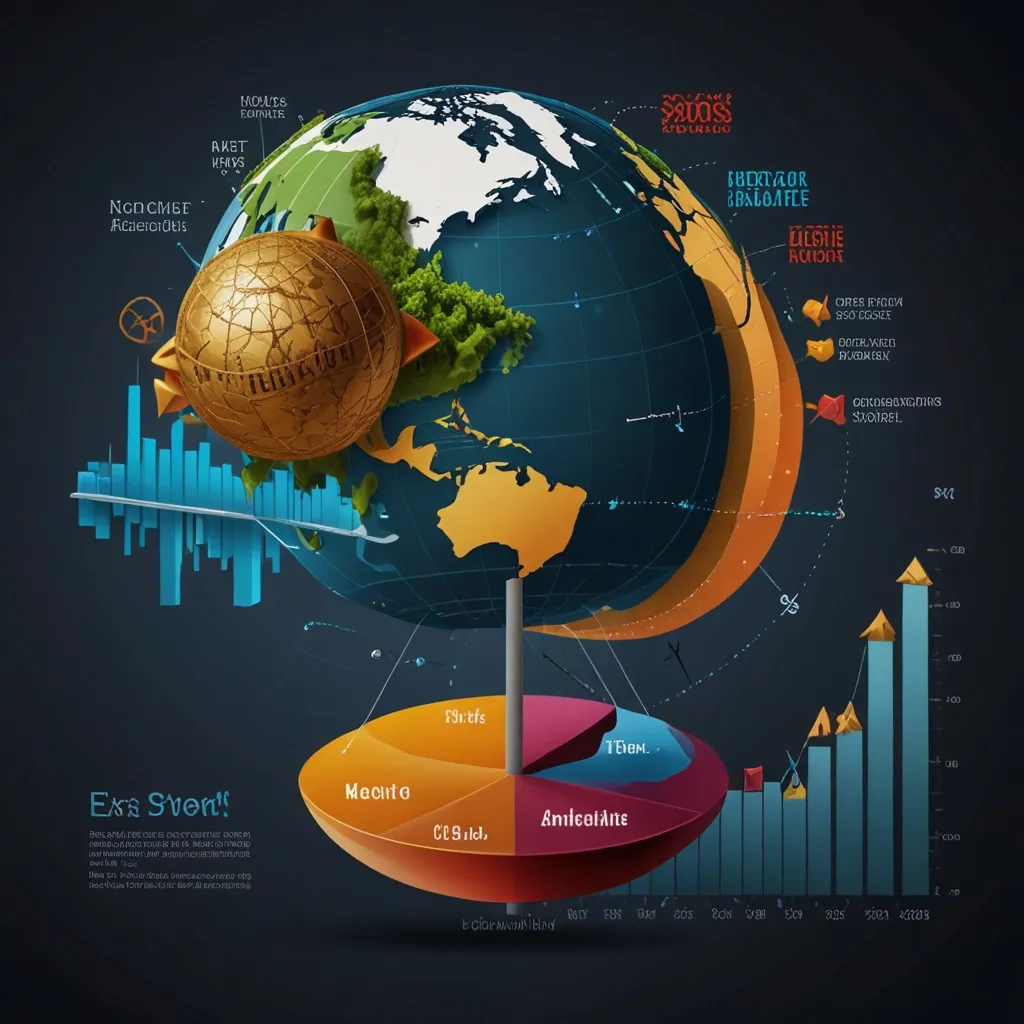So, let’s talk emergency funds. It’s like this invisible yet magical safety net that everyone should have but often overlook until they absolutely need it. Think of it as self-insurance against life’s inevitable curveballs, the financial equivalent of a spare tire in the back of your car. When something unexpected happens, like your car breaking down, a sudden medical bill, or even a job loss, you’ll be thanking your past self for stashing away some cash.
The thing about life is—surprise!—it’s unpredictable. One moment you’re cruising, and the next moment you’re hit with a $500 repair bill for your clunky old car or an emergency vet bill for Mr. Whiskers. And the less glamorous reality is, if you’re unprepared, these surprises can drag you into debt faster than you can say “credit card.” Unfortunately, people without a backup often end up juggling high-interest loans or maxed-out credit cards, resulting in a never-ending cycle of debt.
So, how much should you save up? It’s one of those “depends on your situation” answers. A good starter goal is $1,000. It’s a sweet spot—big enough to handle minor surprises but not intimidating to save up. But if you want to seriously armor-up, shoot for three to six months’ worth of living expenses. This level of safety net is like having a personal financial bodyguard, ready to shield you from job loss or a prolonged illness.
Building up this emergency fund isn’t some Herculean task, though. You just have to know where to start. Start small and keep your eye on that goal. $1,000 might be your first milestone. It’s a psychologically comforting number, knowing you’ve covered many small financial ‘what ifs’ without sweating buckets. Once you get there, you can set bigger goals, making the journey feel less like climbing Everest.
Getting into the savings groove is crucial. Just like you probably brush your teeth every morning (hopefully), make saving just as routine. Maybe it’s $20 a week or $100 a month—whatever works. The key is consistency. Set up automatic transfers from your checking to a dedicated savings account. Out of sight, out of mind, right? This ensures that you’re building your fund without having to constantly remind yourself.
But where does this extra cash come from? Easy. Cut back on those non-essential expenses. Think about all the subscriptions you’re carrying but not using—ditch them. Maybe eat out one less time a week or shop at thrift stores for a change. These small changes can free up more cash than you realize and in no time, that spare money can flow straight into your emergency stash.
Got stuff lying around that you don’t use anymore? Sell it. Old furniture, electronics, or clothes can find a second home through platforms like eBay or Facebook Marketplace. It’s like turning clutter into cash. Throwing a garage sale can also get rid of unwanted items while padding your savings.
Automate your savings, if you haven’t caught that drift yet. It’s the easiest way to save without the hassle. Set up automatic transfers that whisk money from checking to savings as soon as your paycheck lands. This way, you aren’t tempted to spend it first.
Sometimes, life hands you extra cash—maybe a tax refund, a bonus, or birthday money from your Grandma. Instead of splurging on a new gadget or a vacation you might not need, funnel that windfall directly into your emergency fund. These unexpected boosts can give your fund a serious bump.
Keep tabs on your progress. Regularly check your savings account to see the fruits of your diligence. It’s motivating to see those numbers go up, up, and away. And don’t be shy about celebrating your milestones. Hit that $1,000 mark? Treat yourself to a small reward. Milestones are worthy of recognition and they keep you pumped to continue the good work.
Now, about where to park this growing pile of savings. You’ll want a separate, easily accessible savings account but one that’s not so accessible that you can tap into it for non-emergencies. An online savings account without an ATM card can be a good option. You can link it to your checking account for easy transfers while keeping it just out of easy reach.
Once you’ve built this emergency fund, you can’t just ignore it. It needs a little ongoing love and attention. Use it only for real emergencies—those times when things go sideways. That’s the “in case of emergency, break glass” fund. If your financial needs or situation changes, you might need to adjust the amount you’re saving. Regular reviews will keep your fund in tip-top shape.
If saving is still a struggle, think about bumping up your income. Extra shifts, part-time gigs, or side hustles can add a nice financial cushion. More money coming in means more money that can go into your emergency fund.
To sum it up, building an emergency fund is one of the savviest financial moves you can make. It’s not rocket science—it’s just a series of small, deliberate steps. Start small, keep saving consistently, trim those needless expenses, automate your efforts, and boost it with any extra dough that comes your way. This solid fund will act as your personal financial shield, ready to take on any unexpected battles life throws at you.






